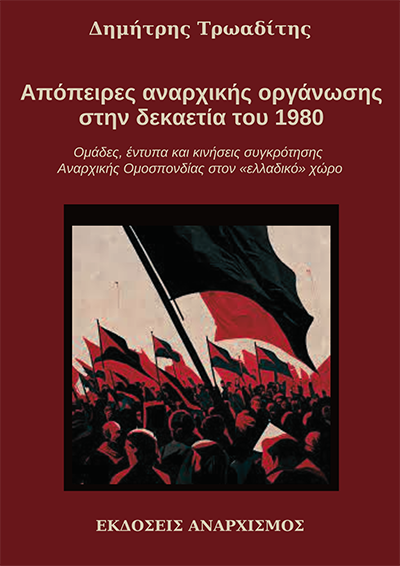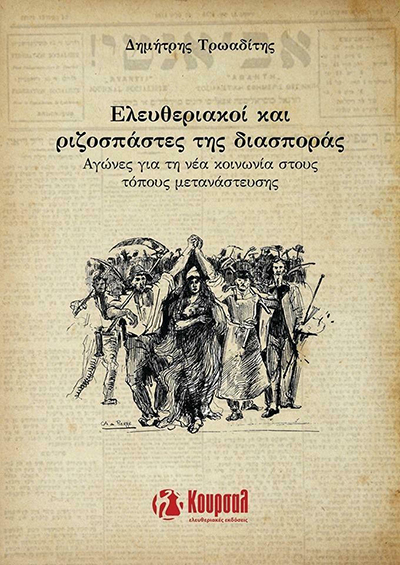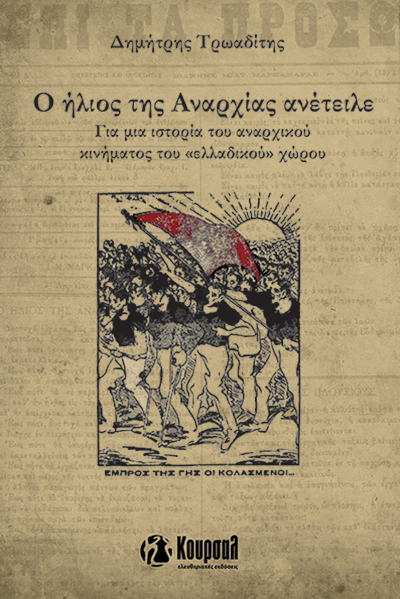- Your name
- English
Balkan Federalism - The social question and the national question in the idea of Balkan federalism
from the 19th to the 20th century: a short survey
Loukis Hassiotis
Modern Balkan history has often been presented as a sequence of nationalist conflicts, cultural and social backwardness, bloodshed and barbarism. This impression has been created partly by the West, by North American and Western European media, politicians, diplomats and academics, who traditionally portrayed Southeastern Europe as something “alien”, completely foreign to the values of Western civilization, in other words approached them through an “orientalist looking glass, to use Edward Said’s famous term. But this impression has been partly a product of the Balkans themselves, particularly of social and intellectual elites, who used these negative stereotypes for their enemies in order to present themselves as the true Europeans, the true agents of culture in the Orient.
This has been one major trend. A second, parallel one has developed over the ages as a kind of counter-narrative to the first one. This counter-narrative stressed social and cultural affinities, as well as common customs and beliefs that were the result of long inter-ethnic coexistence, a coexistence that was severed through the intervention of the Great Powers and their representatives in the area. This counternarrative, stemming from the romantic tradition, belongs primarily, yet not exclusively, to the Left and continues to this day to present itself as the alternative to official historiographies of Balkan states.
The political motivation behind this narrative is usually the support of a federalist reconstitution of Southeastern Europe and the unity of Balkan peoples with an aim to fend off foreign control and live harmoniously in the region.
It is clear today that both these narratives are equally imaginary. Not because they do not correspond to a certain aspect of reality, but mostly because they both reproduce the stereotype of “Balkan particularities”. Indeed, nationalism dominated the region and often led to bloody interethnic and interstate conflict, but this is also true of other European countries. On the other hand, there were definitely commonalities as well as differences between ethnic groups and languages, but again, this is true of the whole of Europe. But there is a further reason why both these narratives are ideological constructs: They present federalism and nationalistm as two opposing political programmes. Well, that is not precisely true.
In other words, one could say that nationalism and federalism (or generally the idea of Balkan brotherhood and unity) often converged and worked together. This is true primarily of the 19th century, which was crucial for the birth and development of nation-states in the region. Indeed, most 19th century movements that supported Balkan solidarity were fighting at the same time for national sovereignty and the liberation of “unredeemed” brothers under Ottoman or Habsburg rule. This phenomenon is hardly a Balkan peculiarity. The coexistence of national and paneuropean political programmes until the end of the century was a trait shared by all radical antimonarchists, like Giuseppe...
- Your name
- Ιστορία Κοινωνικών Κινημάτων
Μετά από τις πρόσφατες λαϊκές απεργίες των μικρο-ανθρακωρύχων στα νότια της χώρας, ως απάντηση στην έναρξη της ισχύος του Επείγοντος Διατάγματος DU 012-2010, που επηρεάζει σοβαρά τη δραστηριότητά τους, και ενόψει της εκτεταμένης άγνοιας περί του θέματος, η Unión Socialista Libertaria (Ελευθεριακή Ένωση Περού) απευθύνεται στην εθνική και διεθνή κοινή γνώμη με την ακόλουθη δήλωση.
Οι μικρο-ανθρακωρύχοι είναι στην πραγματικότητα φτωχοί αγρότες οι οποίοι έχουν χτυπηθεί από τη φτώχεια και ως αποτέλεσμα της έλλειψης αποδοτικότητας της γεωργίας – που έχει σχεδόν καταστραφεί ολοσχερώς χάρη στη νεο-φιλελεύθερη πολιτική και ακόμα περισσότερο χάρη στην εφαρμογή της Συμφωνίας Ελεύθερων Συναλλαγών...
- Your name
- Ιστορία Κοινωνικών Κινημάτων
Το φάντασμα που στοίχειωσε την Ευρώπη του 19ου αιώνα κατέκλεισε τις πόλεις της. Οι Παριζιάνοι που εισέβαλαν στη Βαστίλη το 1789 σήμαναν το προμήνυμα του θανάτου του παλαιού καθεστώτος. Οδοφράγματα υψώθηκαν στις περισσότερες πρωτεύουσες το 1848, οδηγώντας στην πτώση των καθεστώτων. Το 1871 η Κομμούνα του Παρισιού απέσπασε για λίγο την εξουσία από τους κυβερνήτες που αποσύρθηκαν στις Βερσαλλίες. Οι πυροβολισμοί στο ψαχνό εναντίον μιας διαδήλωσης εργατών στην Αγία Πετρούπολη έφεραν την εξέγερση σε όλη τη Ρωσία το 1905. Η εξέγερση του Δουβλίνου το 1916 έφερε τη γέννηση της Ιρλανδικής Δημοκρατίας. Η έφοδος στα Χειμερινά Ανάκτορα το 1917...
- Μαχνοβίτικο κίνημα : Αυτοοργάνωση στην εκπαίδευση και στο θέατρο
- David Edelstadt (1866-1892), αναρχικός ποιητής και προπαγανδιστής
- Η ιστορία της NEFAC στην πόλη του Κεμπέκ (2001-2008)
- Τα 25 χρόνια του Workers Solidarity Movement
- Η επαναστατική ταξική αναρχική πολιτική - Ένα βιβλίο-ορόσημο
- 90 χρόνια εργατικού διεθνισμού στη Νότια Αφρική
- Ενημερωτικό Δελτίο του Melbourne Anarchist Club (Αναρχική Λέσχη Μελβούρνης), 1886
Στο κτήριο της Ελληνικής κοινότητας της Μελβούρνης στις 18/07/2019
Με τον Ελευθεριακό στο Αυτοδιαχειριζόμενο Στέκι Πέρασμα, 22/01/2018




